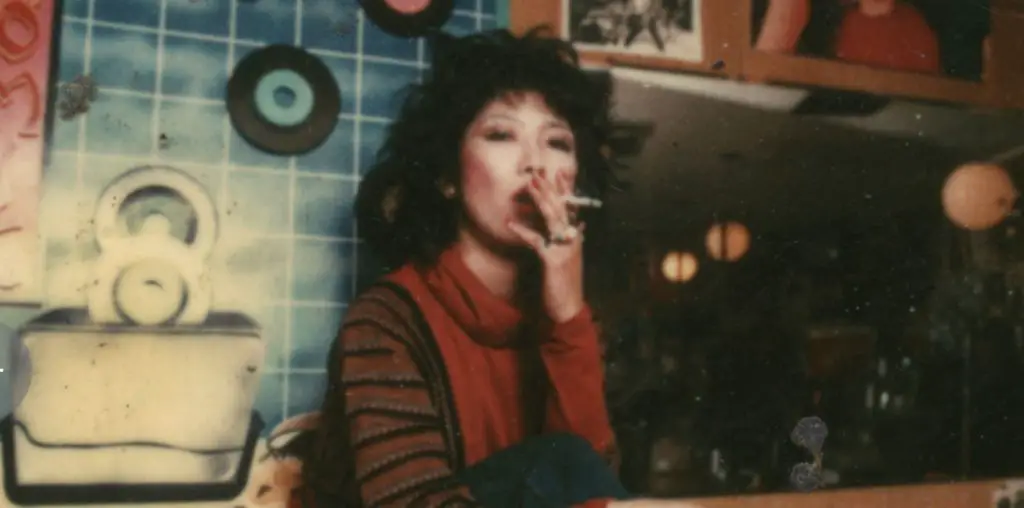
Mike Figgis, the indie cinematic auteur and musician known primarily for films like 1995’s Leaving Las Vegas, has been largely out of the spotlight since his disastrous attempt to go mainstream in 2003 with the lukewarm horror flick, Cold Creek Manor. Rock musician and artist Ronnie Wood, known primarily for being a member of the Rolling Stones since 1975, similarly hasn’t had much going on since the release of the Stones’ Grammy Award-winning album Blue & Lonesome four years ago. The idea of a fusion of these two prodigious talents, the mere notion of Wood’s multi-instrumentalist skills and love of art complemented by Figgis’ distinct visual style and jazzy vibes, is exhilarating. So it’s that much more disheartening that Figgis’ documentary, Ronnie Wood: Somebody Up There Likes Me, somehow ended up so damn perfunctory.
That’s not to say it isn’t worthy of your time, especially if you’re a fan of Wood (more so than Figgis, as his trademarks are primarily absent). Filled with archival concert footage that’s bound to bring jolts of nostalgia to fans, and glimpses of what real music is like to the uninitiated, it wisely allows both its subject to wax poetic in length and its musical bits to play out. From Wood’s small-scale gigs – say, Woody and Friends’ “Mystifies Me” – to the massive stadium venues – The Rolling Stones’ galvanizing “When the Whip Comes Down” – at least a few of these numbers are bound to tingle your senses.
Figgis dutifully traces Wood’s trajectory, from falling in love with the young Stones and vowing to be a part of them, to achieving his dreams, his gigs with the Jeff Beck Group serving as the main bridge in-between those two milestones. Rivalry, corrupt management, drug addiction – all the things you associate with a rock-star biopic are present, albeit softly muted. “I like things too much,” Wood states candidly to Figgis, the ever-present (and borderline-intrusive) interviewer, “which is harmless when it’s things like music, but harmful when it’s dope or alcohol.”

“…traces Wood’s trajectory, from falling in love with the young Stones…to achieving his dreams…”
The musician’s certainly gotten away with a lot, most recently having survived lung cancer. “Somebody up there likes me,” he exclaims cheekily (roll credits!), before adding, “and someone down here likes me too.” His vivacious personality carries the documentary. “It’s very surreal to be 70,” he laments about the rapid passing of time. Though he’s been through a lot, he’s not really ridden by remorse, openly admitting that he knew that the dangerous path he chose brought him a lot of pleasure. Sure, there were bad periods. “If I don’t get the next hit, I’m gonna die, so I’m gonna kill you,” he recollects the trail of consciousness that pervaded his mind with a shudder. “I turned into this sour person.” But ultimately, he refers to the “drug period” as a sequence of spiritual awakenings and perhaps exorcises his demons by strumming away on his guitar.
Figgis relies primarily on talking heads to provide context, never delving too deeply into Wood’s mind. Mick Jagger makes an appearance, reminiscing about being inspired by the British jazz scene. Rod Stewart remembers wiping the floor with The Grateful Dead. Keith Richards and Charlie Watts contribute their two cents as well. It’s fascinating to see these legends speak, and you could listen to their anecdotes for hours, but no one ever says anything inflammatory, disruptive, or controversial.
Perhaps the movie’s most interesting moment arrives when Wood and Figgis contemplate the crossroads in life that we all face at one point. Are our paths predetermined? (Don’t let me go too Devs here.) Would Ronnie have been as famous had he chosen to pursue art, his other main passion, instead of the Rolling Stones? Not to diminish the confident brushstrokes that we see him apply throughout Roonie Wood: Somebody Up There Likes Me, but I think we all know the answer to that question. Consider this though: that is the most probing quandary posed in a Mike Figgis doc about Ronnie Wood. I mean, c’mon.

"…he’s not really ridden by remorse, openly admitting that he knew that the dangerous path he chose brought him a lot of pleasure."


